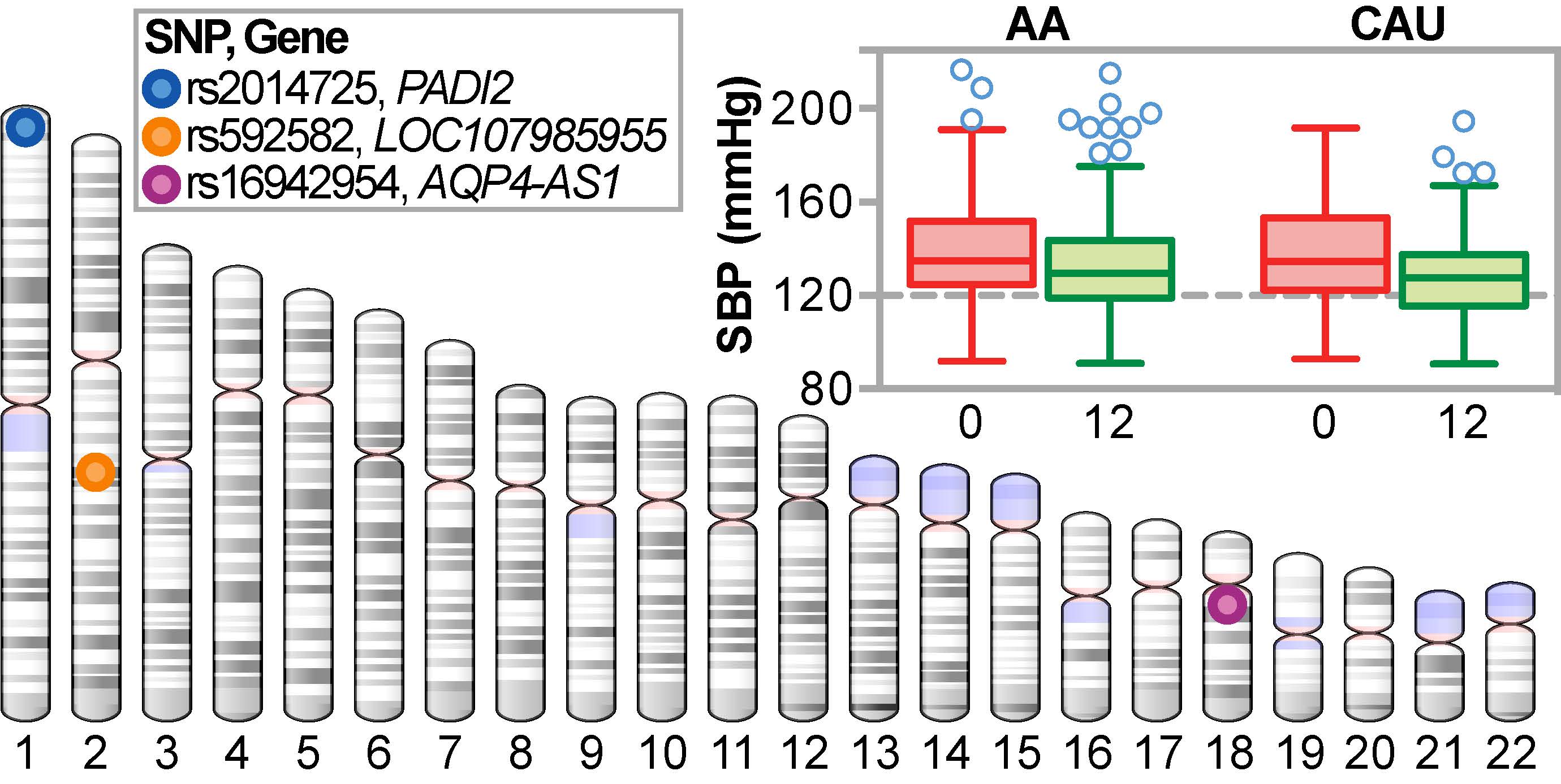Background: As part of the Heart Healthy Lenoir Project, we developed a practice level intervention to improve blood pressure control. The goal of this study was: i) determine if single nucleotide polymorphisms (SNPs) that associate with blood pressure variation, identified in large case-control studies, are applicable to blood pressure control in subjects from a rural population; ii) measure the association of these SNPs with subjects’ responsiveness to the hypertension intervention; and iii) identify other SNPs that may help understand patient-specific responses to an intervention. Methods and Results: We used a combination of candidate SNPs and genome-wide analyses to test associations with either baseline systolic blood pressure (SBP) or change in systolic blood pressure one year after the intervention in two genetically defined ancestral groups: African Americans (AA) or Caucasian Americans (CAU). Of the 48 candidate SNPs, 13 SNPs associated with baseline SBP in our study; however, one candidate SNP, rs592582, also associated with a change in SBP after one year. Using our study data, we identified 4 and 15 additional loci that associated with a change in SBP in the AA and CAU groups, respectively. Our analysis of gene-age interactions identified genotypes associated with SBP improvement within different age groups of our populations. Moreover, our integrative analysis identified AQP4-AS1 and PADI2 as genes whose expression levels may contribute to the pleiotropy of complex traits involved in cardiovascular health and blood pressure regulation in response to an intervention targeting hypertension. Conclusions: Identification of SNPs associated with the success of a hypertension treatment intervention suggests that genetic factors in combination with age may contribute to an individual’s success in lowering SBP. If these findings prove to be applicable to other populations, the use of this genetic variation in making patient-specific interventions may help providers with making decisions to improve patient outcomes. Further investigation is required to determine the role of this genetic variance with respect to the management of hypertension such that more precise treatment recommendations may be made in the future as part of personalized medicine.

